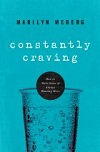Preachers are supposed to keep people from sinning, Brown says. He's been trying for forty years and hasn't been very successful so far. We have a proclivity to sin. We are drawn to it.
The church is in serious trouble, Brown claims. It's not because we don't have the latest program. The problem is that we've taken the good news and made it bad news.
If you are tired of trying not to sin, of trying to live the victorious Christian life, Brown has good news for you.
Like Luther, Brown writes, “Sin boldly!” (42) “We are serious sinners,” Brown says. (81) We are not nearly as righteous as we think we are.
He gives you permission to be human and forgiven. If you have free sins, you don't have to wear a mask any more. You don't have to please anybody but Jesus (and He is already pleased). You have “unlimited free sins.” (150)
“The gospel of free sins makes getting better sort of irrelevant.” (115) “You don't have to get better. This first truth is the essence of the gospel and this book.” (118) You don't have to get better to make God love you, to maintain his love, to witness, to make a difference, to be sanctified or holy. But you will get better, Brown says. God will do it. You probably won't even know it.
This is a disturbing book. Oh, it's not disturbing because Brown announces that all my sins are forgiven, past, present and future. I've understood that since my youth and don't try to make God love me more by behavior. I got that a long time ago.
What makes this book disturbing is how Brown describes himself. “I tried to work at [getting better],” he writes, “and I got worse.” (225) So he quit trying. “I already have enough trouble getting through the day without screwing it up so badly I can't fix it.” (106) He calls himself “a cynical old preacher.” (139) He says, “...I'm about as messed up as anybody I know.” (131)
His attitude seems to be, we are sinners, we are going to sin no matter how hard we try not to, we are forgiven by God, so just consider all your sins free. Just stop worrying about sin and live your life with gusto.
This book is disturbing because Brown seems to ignore the commands in the New Testament to “be better,” as he calls it. Commands to renew your mind, to put on compassion, abstaining from every form of evil, putting away anger, etc.
He ignores concepts like knowing people by their fruit, or Paul beating his body so he would not be disqualified, or church discipline, or caring for the needs of others more than your own, of being transformed from glory to glory. I think you get my point.
This book is disturbing because sometimes Brown writes things just to shock us, I think. “And the more you are sanctified, the less you will feel close to God...” (130) On whether he is getting better or not: “Either way, it doesn't matter, because that isn't the issue. Jesus loves me big either way!” (131) “Repentance isn't changing; it's God's way of changing us if that is what he wants.” (38) “...[Y]our sin – is the greatest gift God has given you if you know it. … Your obedience...your getting better is the most dangerous place you can be when you know it.” (39)
The book is disturbing because Brown says he honestly thinks that, “...Satan has a plan of deception that might have something to do with your unease about the concept of free sins.” (161) Ah, the ultimate trump card in theological debate. If I don't agree with Brown, it is because I am being deceived by Satan.
And perhaps, for me, the most disturbing of all is how he describes our relationship to God. God is part of our DNA. “...[T]his God thing in us is not altogether different from hunger, sexual desire, or the drive for peace and security; only it's far bigger.” (215) I think likening God in me to hunger or sexual desire is doing God a great injustice, to put it mildly.
If you have been taught that God will love you only when you are behaving the way He wants, then this book will be very freeing for you. But if you have any maturity at all in your Christian walk, if you at all understand that your sins are forgiven and you have been called to live a life worthy of the gospel, I think you will find this book disturbing too. And not in a good way.
Paul admonished the Philippians to “be better” (as Brown calls it) so that they would be blameless and innocent, “children of God without blemish in the midst of a crooked and twisted generation, among whom you shine as lights in the world...” (Phil. 2:14-15). And if that seems impossible, the really good news is that as you “work out your own salvation with fear and trembling...it is God who works in you, both to will and to work for his good pleasure.” (Phil. 2:12-13) For me, the really good news of the gospel is not to quit trying. The really good news is that if I try to please God (please Him, not make Him love me more), He is right there in me, making it happen!
Steve Brown is a broadcaster, seminary professor, author, and the founder and president of Key Life network. He previously served as a pastor for over twenty-five years. You can find out more about him and his ministry at www.keylife.org.
Howard Books ( a division of Simon & Schuster), 239 pages.
I received a complimentary copy of this book from the publisher for the purpose of this review.






















